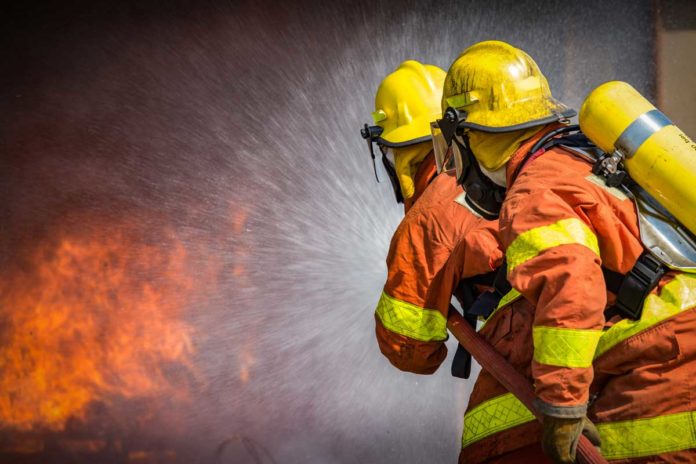MANITOULIN—Canada has been blessed with a veritable potpourri of cultures through a long history of immigration and nearly four percent of Canadians have ancestry that traces back to Ukraine, so it is not surprising that many Islanders have familial connections to that country.
The invasion of Ukraine by the Russian army has rocked the global community to its core, especially given that Russian president Vladimir Putin is furiously rattling his country’s nuclear sabre in order to keep the rest of the world (and particularly the European Union and the NATO alliance) from interfering.
The Expositor reached out to several Manitoulin District and area residents with connections to Ukraine in order to elicit their views on what is happening in that country.
Ann Slaght’s parents originally hailed from Serafynci, a small town in the region of Ivano-Fran Kivsk Oblasi and she still has distant cousins who live in Ukraine. “I’m heartbroken and sad,” she said. “My parents would have been devastated by the news we are seeing. They were born in the southwestern part of the country.”
Ms. Slaght questions what Ukraine could possibly have done to hurt Russia and could come up with “nothing!” Ms. Slaght’s sister Olga was born in Austria, and therein lies an interesting piece of history of the region.
“My parents were 17 and 19 when the Germans came to their door and told them to pack,” she said. “They were taken to Austria as forces labour during the Second World War.” About a decade ago there was a movement to provide compensation to those who were taken into slavery by the Nazi cause, but that turned out to be another indignity foisted upon the survivors and their families.
“We hired a lawyer and put together all the documents to send a claim to Germany,” she said. “It cost us thousands of dollars.” When the cheque finally arrived, “$371 is all we got.”
The turmoil of that region of the world is one of the reasons her family chose to come to Canada instead of returning to Ukraine after the war. The region being under the domination of the USSR at the time was hardly any incentive either.
As for how she feels, Ms. Slaght shared, “I’m just numb. I can’t believe something so horrific is happening in our world.”
Michael Narozanski’s heritage is Polish, but he doesn’t speak that language from his youth. He speaks Ukrainian. “The area in Poland my family is from was under Ukrainian occupation,” he said. “There is such a mix of people in that part of the world from what I know of Russia, Poland and Ukraine. Many of the customs are similar.”
Where he grew up in Creighton Mine, the area his family lived in had a large Ukrainian diaspora and he grew up with many Ukrainian-Canadian friends.
Mr. Narozanski said he was dismayed that someone like Russian president Putin could hold the world hostage, “like a bank robber getting the money.”
Father George Gardner’s late wife was of Ukrainian descent, her grandparents had immigrated to Manitoba following the First World War where they settled on a farm to raise wheat. “Mary was third generation,” he said. “They lived in Duffin, Manitoba.”
Although the couple married in the Ukrainian Catholic Church, his wife had drifted away from that faith to identify more as a Roman Catholic. “Mary didn’t approve of a lot of the things that had been happening in Ukraine,” he said. “She wouldn’t have liked Zelenskyy (Ukrainian president Volodymyr Zelenskyy who has been defying Moscow and whose bid to join the North American Treaty Alliance and the European Union helped provide the catalyst [or pretext depending on point of view] for the current Russian invasion of Ukraine).
Father Gardner said that he believed his late wife would have had a strong opinion as to how the country should react to the Russian invasion. “She would have said ‘surrender, just give up, it isn’t worth the suffering and destruction’,” he said. “‘Let us surrender and live in peace.’”
“You know Mary was aware that Ukrainians had lived under Russian rule when it was the Soviets,” continued Father Gardner. “They were okay then, that was what it was like before.”
Father Gardner said that it wasn’t worth the devastation of war to resist the invasion.
“Let them take over and just live in peace,” he said.
He noted that mothers have the instinct to live in peace, to live in a world where their babies can grow up in safety. The current atmosphere across the world, with the drumbeats of war growing ever louder and the rattling of sabres between nation states harbours back to the days preceding the Second World War, noted the Roman Catholic priest. “I’m old enough to remember the Second World War, we lived through it,” he said. “Today, there are nuclear weapons that could wipe out all of humanity being readied. There will be no winners in a war like that.” Currently, most of the world’s nations (including Canada) have imposed heavy sanctions on Russia, its industries, economy and its oligarchs, closing their airspace to Russian planes, their ports to Russian shipping and halted the natural gas pipeline between Germany and Russia—but many nations (including Canada) are still accepting Russian oil.




